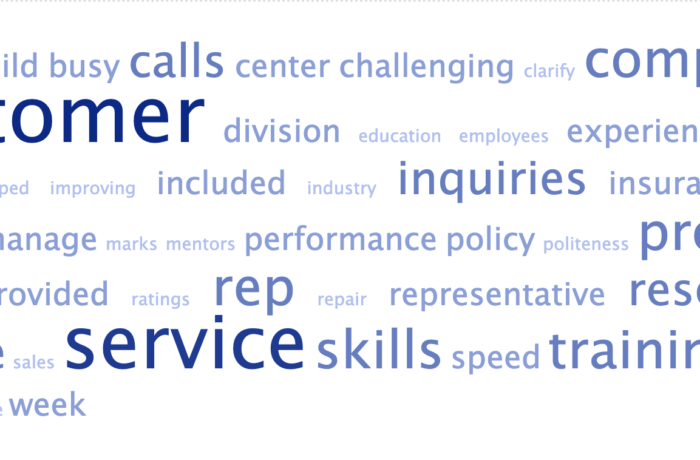The interview process is nerve-wracking for just about everyone, but it can feel particularly stressful if it’s been several years, even decades, since you sat across from someone and answered questions about your work experience and qualifications.
Indeed, re-entering the workforce brings to the forefront all sorts of emotions, including fear, anxiety, concern, trepidation, and doubt, says Gail Berger, assistant professor of instruction at Northwestern University’s Kellogg School of Management.
There is a silver lining. While the types of questions you are likely to get, and the tenor of the interview will likely vary by industry and position, one thing is constant: understanding the top interview questions you’ll get may help you feel calmer and more composed, which can speak volumes about your ability to handle the job.
Classic Question: “Why is there a gap in your employment between [insert date] and [insert date]?”
If you answer that you were taking time to care for family, your interview might follow up with, “’Why do you want to get back into the workforce?’ or, ‘How did you keep up with current practices or technology during this time?’” says Margaret Jacoby, SPHR, president of MJ Management Solutions.
Some women feel defensive when walking a potential employer through their decision to leave the workforce. Avoid that by focusing on the positive aspects of your gap, which include the ability to return to work with a fresh mind and eagerness to succeed, Berger says.
On the skills front, “Be prepared to offer ways you’ve maintained skills and even added skills during time away from your career,” Jacoby says. Share significant volunteer positions held and highlight the leadership and organizational skills you honed during this time. If you oversaw marketing or email campaigns for a local food bank and they saw an increase in donations during that time period, for example, share that. Coming armed with concrete examples of how your work produced positive results will help get the attention of prospective employers.
Classic Question: “Tell me about your work history and what led you to your current career path.”
“This is a general question I ask typically on phone interviews before I launch into more competency-based behavioral questions.,” says Rhonda Hospedales, assistant vice president of human resources at Arcadia University in Glenside, Penn.
It’s straightforward, but can trip people up.
“What I’m looking for is a short three- to five-minute snapshot of what led you to your current career choices. This provides you the opportunity to explain gaps and reasons why you’re pursing this opportunity,” she says. “Don’t get too personal with this—keep it succinct and move on. I am more concerned by someone who has had many employers in a short period of time as opposed to someone who has a lengthy gap on their resume.”
The Personality-Driven Question: “Tell me about your weaknesses.”
This is a tricky one. You don’t want to give reasons not to be hired, but you want to be responsive.
“The worst answer is to say, ‘I don’t have any,’” Hospedales says. “Everyone, including CEOs, are always looking at ways to improve themselves.”
Instead, turning a so-called weakness into a strength can help the interviewer see that you’re a good fit for the job. For example, say something like, “’I haven’t had a lot of experience with (XYZ), but I am excited to learn more,’” Jacoby says. If the position you’re seeking is an opportunity to build upon these identified weaknesses, then state that in your response and provide specific examples as to how you will accomplish that. Take note: Never name a skill that’s a critical requirement for the job.
“The answer I look for is one that shows the candidate has engaged in some form of self-reflection with regards to their work experience and skill sets, and has identified areas of either personal or professional development that they can improve upon as well as become a valuable asset to the employer,” Hospedales says
The Long-Term Goal Question: “What motivates you? What are your career goals?”
Stay away from “my family motivates me,” unless you can give some concrete examples that demonstrate aspirations and goals in the business setting, Jacoby suggests. Personal goals can also be helpful here if they lead back to why you are applying for the job. You could say, “This position will provide me with more managerial and operations experience that enhances my ultimate career goal of becoming a chief operations officer (or another high-level supervisor).”
Your interviewer wants to know that you are ready to grow with the firm over the next few years, so make sure that the career goal you state aligns with that and one that could come about from this position. (I.e. Don’t say your ultimate goal is to become a Chief Financial Officer, but you’re applying for a tech-related job at the company.)
The Unique Question: “What books have you read lately?”
“While this may seem unrelated to the job, you can make it relate to the job,” Jacoby says. As you embark on your job search, determine what publications you should be reading to keep abreast of industry trends, including magazines, blogs, and websites. Are there manuals, magazines, books, websites, and blogs that you can cite in the interview process? If you’re prepared, this is the perfect opportunity to show you’ve been keeping your skills and industry knowledge up-to-date. Adding some non-business related reading is fine, as long as it’s appropriate; in other words, keep your Fifty Shades of Grey reading to yourself.
The Decision-Making Question: “Give an example of a situation in which you had to make a decision when you didn’t have all facts available.”
This question gives you the opportunity to show your resourcefulness and initiative.
Many times, we make decisions based on instinct without having complete data. The individual who possesses good logical and analytical skills will make high-quality decisions in any situation, particularly this one.
For example, perhaps you wanted to add new functionality to your previous employer’s top-selling product based on customer feedback and reviews for how it could be more user-friendly. You subsequently brought this innovative idea to upper management without knowing how to make this happen, how much it would cost the company, or how long it would take to be fulfilled. This type of answer shows that you were listening to and trying to address customers’ needs, but you’re aware that you didn’t fully understand the scope of those improvements.
At the end of the answer when you describe your personal encounter with this, you might admit fallibility, like, “There were times the decision turned out to be wrong, but it left an impression on me to learn from the error and not make the same mistake again.”
The Situational Question: “Describe a situation when you took an initiative to provide a dissatisfied customer with an unusual solution that did not compromise the company, but boosted the customer’s satisfaction?”
There are variations on this question depending on the position being filled, but one rule applies. “The interviewee should always be prepared to talk about situations she has faced and how she resolved those challenges in the context of past work situations or more recent volunteer-type situations,” Jacoby says.
A good example: An elderly, loyal customer called to request a refund for an online purchase she made in error. Your company policy prohibited refunds until the product was returned. Because you could hear in the customer’s voice that she was very upset about her error and couldn’t wait for the refund to be processed post-return, after some conversation with her, you authorized the refund after she promised to send the box back unopened. She breathed a sigh of great relief and expressed her thanks. The lesson? You did the right thing because the customer was very happy and had a long history with the company.
The Closing interview Questions: “What questions do you have for me?”
Even if this is not asked directly, you should take the time to ask a few questions related to the position.
But that doesn’t mean diving into questions you likely have about benefits and salary; save those for later in the process. Examples of suitable questions here are:
- “Why is this position open? Is it a new position or a replacement for someone?”
- “How long have you been employed here? What do you like most about the company or your job?”
- “When do you expect to make a decision?”
These tips should help give you the confidence you need when on an interview.





